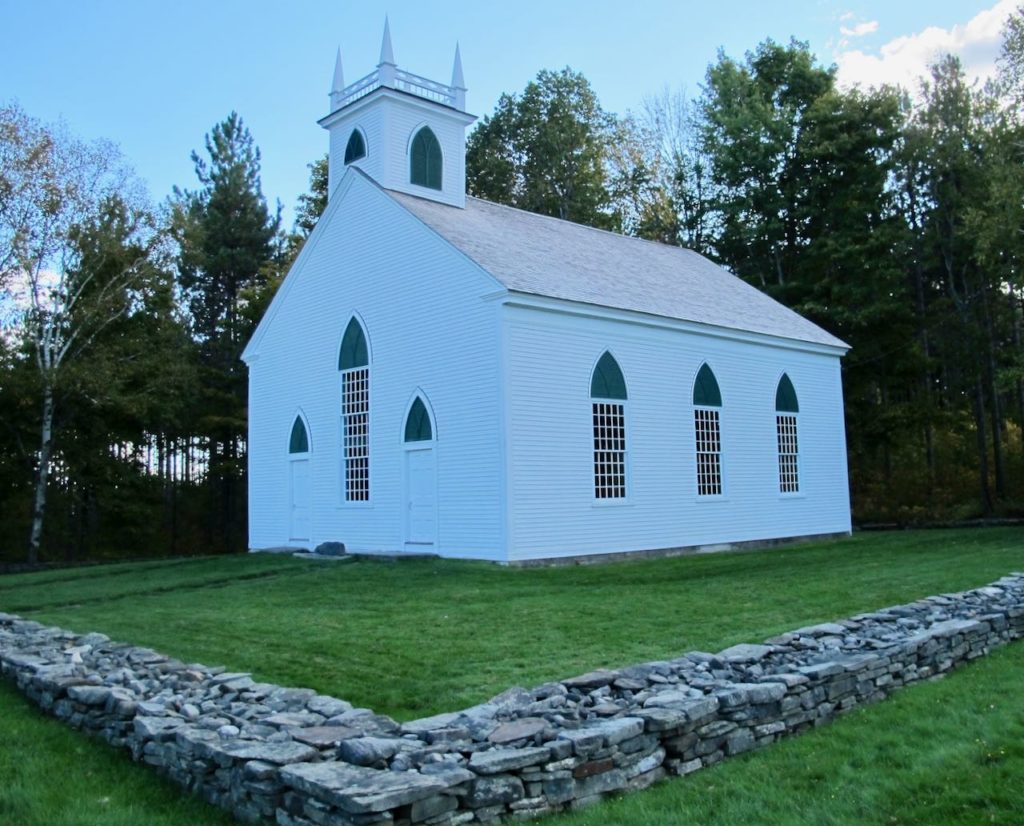
Open the door to Maine’s South Solon Meeting House and Wow! Neither the classically influenced colonial, white-clapboard architecture nor the serene location on a rural crossroads hint about what’s inside.
Built in 1842, and now listed on the National Register of Historic Places, the South Solon Meeting House retains its original podium, box pews, choir loft, windows, and steeple. But, inside it’s been completely frescoed, floor to ceiling, with interdenominational religious scenes.

A visual awakening
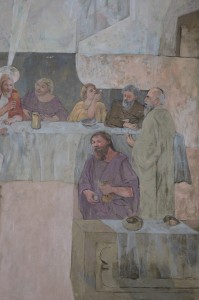
The first time I visited, I walked around gape-mouthed, trying to make sense of the jarring disconnect between prim exterior and racy interior, primitive design and contemporary decor, all while taking in the equally disconnected scenes vying for attention.
I didn’t know where to look first: The Last Supper, a parade of angelic musicians, shepherds, fishermen, church-going families. Walls, ceiling, choir loft, entry, every available space preached.
But, why?
Let’s start at the beginning. The open-minded founders of the South Solon Meeting House stipulated: “the house [be] opened freely on weekdays, when requested, for conference meetings and for lectures and addresses on all religious benevolent, moral and scientific subjects.” So, the building never was purely a house of God.
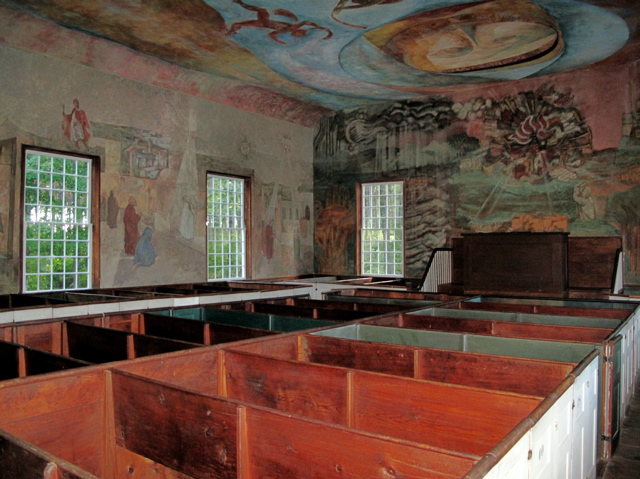
Salvation: Imagination & interpretation
As with many such buildings, it deteriorated over the years. In the 1930s, Helen and Williard Cummings of Skowhegan lead a community effort to save it.
In 1946, Willard, a portrait artist, together with Henry Varnum Poor and Sidney Simon, founded the nearby Skowhegan School of Painting and Sculpture, a summer artist residency program that specialized in frescoes (and still does).
It’s certainly thought provoking, and it invites lingering a little longer, if not in contemplative prayer than in wide-eyed wonder.
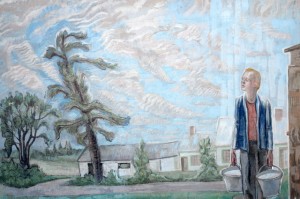
In the 1950s, student Margaret Day Blake took a shine to the meeting house. With the school’s support, she offered 13 fellowships to young, professional artists, selected from three national juried competitions, to paint the interior.
The winners: Sigmund Abeles, Alfred Blaustein, Edwin Brooks, Ashley Bryan, Williard Cummings, Sidney Hurwitz, William King, Tom Mikkelson, Anne Poor, Henry Varnum Poor, Judith Shuman, Sidney Simon and John Wallace.
The only instruction provided to these artists:
“There shall be no limitation of subject matter; however, bearing in mind the religious character of the building, which has been non-sectarian from its inception, it’s suggested that the New and Old Testaments offer rich and suitable subject matter. This material should be interpreted in imaginative terms which allow complete freedom to develop symbols, associations, or legends.”
The dizzying riot of color and art followed.
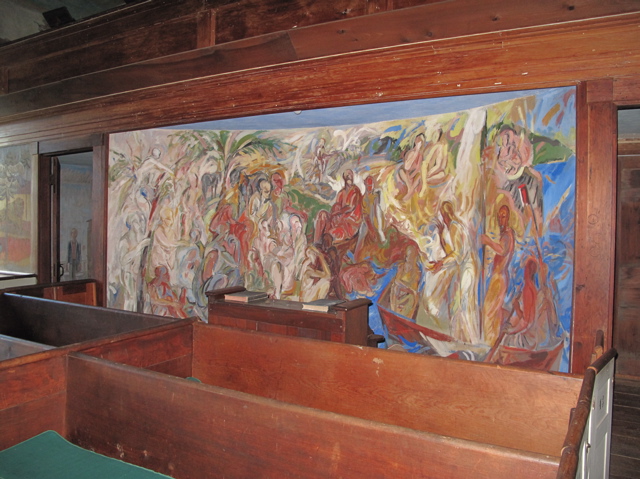
Securing the future of the South Solon Meeting House
Now some people might think the result isn’t proper for a meeting house, but I believe the founders of the South Solon Meeting House would have approved of this odd juxtaposition of color and image on their colonial building. It’s certainly thought provoking, and it invites lingering a little longer, if not in contemplative prayer than in wide-eyed wonder.
Since 1956, The South Solon Historical Society has cared for the meeting house. Preservation and maintenance is an ongoing struggle. While the Board seeks to further promote use of the building for cultural events and community life, the most pressing concern at this time is the need to repair the damage and deterioration wrought by the passage of time and weather, and create an endowment for future maintenance.
When you visit, leave a donation to help preserve this building and its frescoes for future generations.
The meeting house is located on the corner of the South Solon and Meetinghouse Roads, north of Route 43 and east of Route 201.
And a few more images…
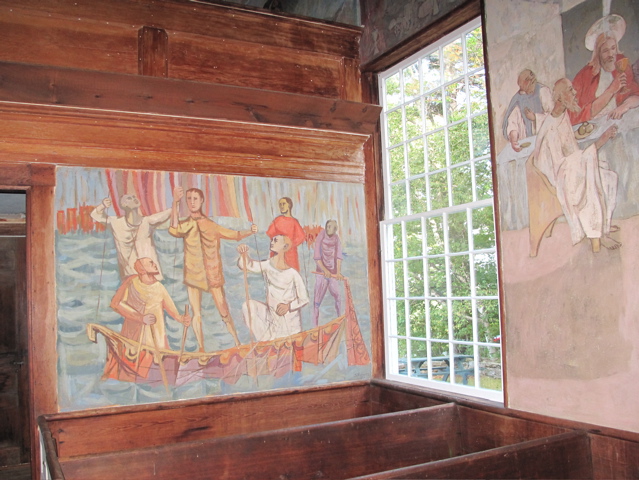




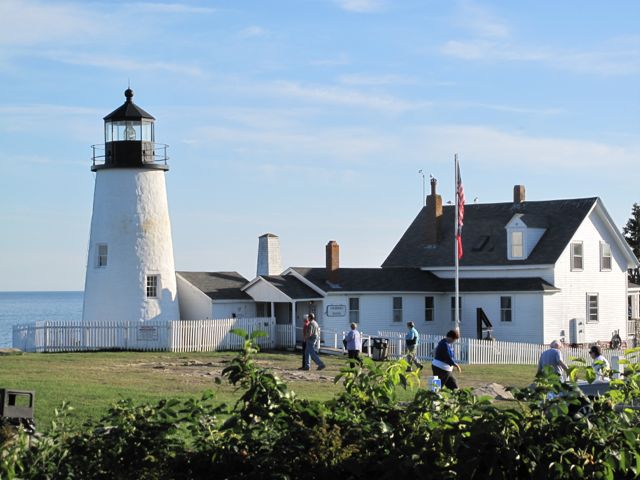
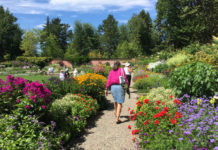
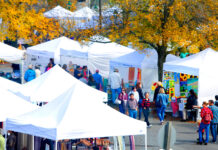
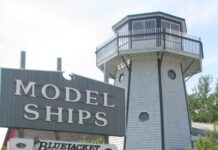
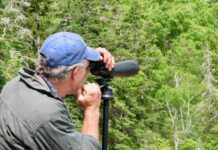





I have to see this place, it sounds like a gem. Sometime next spring, perhaps?.
It’s always open, Tim (although I imagine it’s mighty chilly in winter). And yes, it is a gem.
This is the most incredible series of murals we have ever seen. Definitely, worth the trip from Portland, and fairly easy to find if you take the “fork” by Gifford’s Ice Cream.
It is amazing. I go sit at least once a year and simply meditate
Comments are closed.